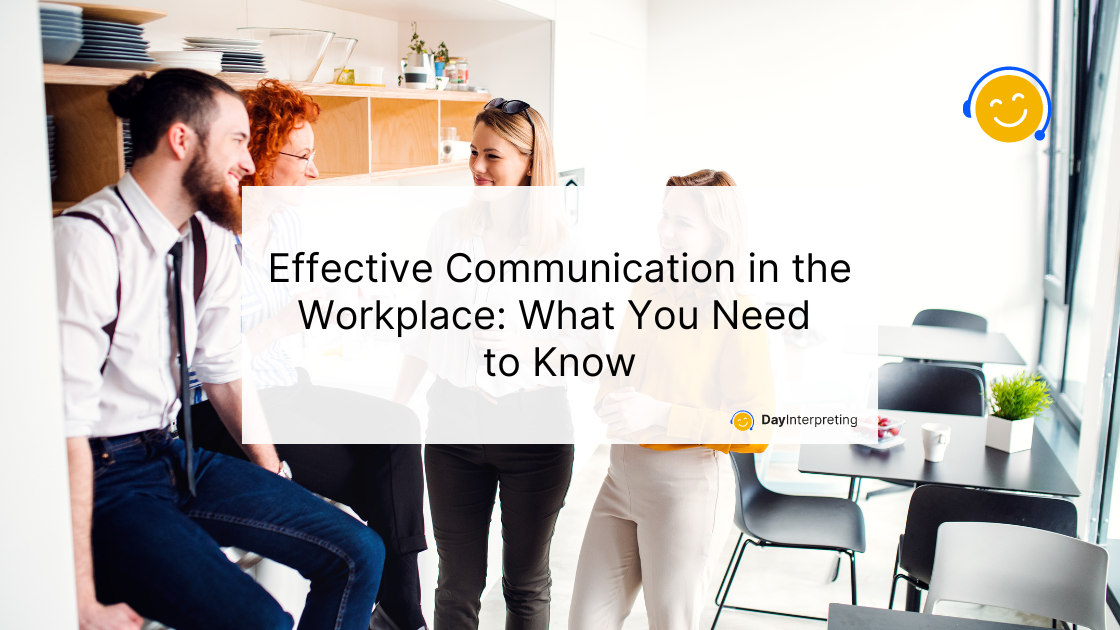Communication is the backbone of any successful workplace. Effective communication in the workplace is key whether you’re working on a team project, leading a meeting, or simply chatting with colleagues. This guide will help you understand the importance of good communication and provide tips to improve your skills.
Why Communication Matters
Good communication ensures that everyone is on the same page. It helps prevent misunderstandings, builds stronger relationships, and boosts productivity. When everyone knows what’s expected, tasks get done more efficiently. Plus, it creates a more positive work environment where people feel valued and heard.
Furthermore, with remote work and global hiring becoming more prevalent — it’s now easier than ever for companies to hire in countries like India through services such as Remote, for example — effective communication takes on an even more crucial role, as conversing with someone who may not speak your native language requires clarity and empathy.
The Benefits of Effective Communication
- Better Teamwork: When team members communicate well, they collaborate better. Sharing ideas and feedback openly helps everyone contribute their best.
- Increased Productivity: Clear instructions and expectations mean less time is wasted on confusion and mistakes, especially when paired with a time tracker to monitor and optimize how work hours are spent.
- Improved Morale: Feeling understood and appreciated boosts employee satisfaction and motivation.
- Enhanced Problem-Solving: Open communication allows for quicker identification and resolution of issues.
Key Communication Skills
Improving your communication skills doesn’t have to be complicated. Here are some key skills to focus on:
Active Listening
Active listening means truly paying attention to the speaker. It involves nodding, making eye contact, and responding appropriately. This shows the speaker that you value their input and are engaged in the conversation.
Clear and Concise Messages
Keep your messages clear and to the point. Avoid jargon and complicated language. Whether you’re writing an email or speaking in a meeting, simplicity is key. This ensures that your message is easily understood by everyone.
Non-Verbal Communication
Your body language, facial expressions, and tone of voice all play a role in how your message is received. Make sure your non-verbal cues match your words. For example, smiling when giving positive feedback can enhance your message.
Empathy
Understanding and sharing the feelings of others helps build strong relationships. Show empathy by acknowledging others’ perspectives and emotions. This creates a supportive and respectful work environment.
Practical Tips for Better Communication
Improving your communication skills takes practice. Here are some practical tips to help you get started:
Practice Active Listening
- Focus: Give the speaker your full attention. Put away distractions like phones or laptops.
- Feedback: Show you’re listening by nodding or giving verbal cues like “I see” or “Interesting.”
- Reflect: Summarize what the speaker said in your own words to ensure you’ve understood correctly.
Be Clear and Direct
- Plan Your Message: Think about what you want to say before you speak or write.
- Use Simple Language: Avoid using technical terms or jargon that others might not understand.
- Stay On Topic: Keep your message focused on the main point to avoid confusion.
Pay Attention to Non-Verbal Cues
- Body Language: Maintain good posture and use appropriate gestures.
- Eye Contact: Make eye contact to show engagement and confidence.
- Tone of Voice: Use a tone that matches your message. For example, use a calm tone for serious topics and a cheerful tone for positive news.
Show Empathy
- Acknowledge Feelings: Validate others’ emotions by saying things like “I understand how you feel.”
- Be Supportive: Offer help and support when someone is struggling.
- Respect Differences: Appreciate that everyone has different perspectives and experiences.
Overcoming Communication Barriers
Sometimes, communication can be challenging. Here are some common barriers and how to overcome them:
Language Differences
If you work with people who speak different languages, try to use simple language and avoid idioms. Using translation tools can also help bridge the gap.
Cultural Differences
Be aware of cultural differences that might affect communication. Respecting different customs and communication styles is crucial for effective interaction.
Emotional Barriers
Emotions can sometimes interfere with clear communication. If you’re feeling upset or stressed, take a moment to calm down before communicating. This will ensure that your message is clear and respectful.
Wrapping Up
Effective communication is essential for a successful workplace. By practicing active listening, being clear and concise, paying attention to non-verbal cues, and showing empathy, you can improve your communication skills and create a more positive work environment. Remember, good communication is a continuous process. Keep practicing, and you’ll see the benefits in no time!





0 Comments